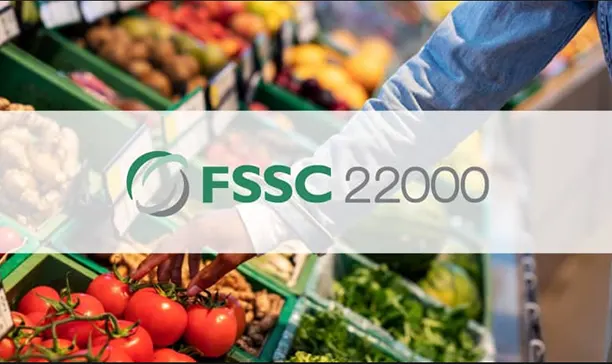FSSC 22000 certification Scheme for Food Safety Management

FSSC 22000 certification and preparation by Mind The Gap Cyprus. GFSI Standards like FSSC 22000 are Global Standards, recognized by the Global Food Safety Initiative (GFSI), that provide guidelines for a Food Safety and Quality Management System.
The FSSC 22000 certification Scheme for Food Safety Management provides a framework for the effective management of an organization’s food safety responsibilities and is based on the existing ISO Standards. More specifically, the Scheme consists of three components: ISO 22000 sectors, specific PRPs and specific FSSC 22000 requirements. In order for the standard to meet the requirements for quality as well, an ISO 9001:2015 module has been added to the existing FSSC 22000 standard, the FSCC 22000-Q, making it in this way possible for an organization to get certified with both FSSC 22000 and ISO 9001 standards.
The organizations that choose to implement and get certified with the FSSC 22000 standard instead of ISO 22000 are those who want or are requested by their customers to be Globally Recognized with one of the GFSI Standards.
Why GFSI Standards and Certification Matter
GFSI standards and certification provide businesses with the tools to operate more safely, more efficiently, and with greater trust from customers. Moreover,they can be integrated with all ISO and GFSI Standards (ISO 9001, ISO 22000 etc). By following these globally recognized guidelines, companies can strengthen food safety practices, reduce risks, and open doors to new markets.
Global Recognition
An FSSC 22000 certified business can gain trust not only in its local market but also internationally. It opens doors to working with partners and customers around the world who rely on this standard as proof of strong food safety practices.
FSSC 22000 certification is achievable and Cost Effective
FSSC 22000 is designed to be cost-effective, making it possible for both large and small companies to adopt without overwhelming expenses. The process is structured and clear, helping organizations reach certification step by step.
Protects your brand and consumer
Certification protects your company’s reputation as well as the health and trust of your consumers. By showing that food safety is taken seriously, businesses strengthen their image and customer loyalty.
First Standards to define food fraud
FSSC 22000 was among the first standards to directly address food fraud. That means it not only looks at safety and hygiene but also preventing intentional dishonesty or substitutions that could harm consumers and damage trust.
FSSC 22000 offers a food safety culture assessment
Beyond technical rules, FSSC 22000 includes a way to assess the overall culture of food safety within the business. This encourages companies to focus on attitudes, behaviors, and awareness across all levels of staff.
Reduces waste, complaints, recalls and rejected products
By following the requirements of FSSC 22000, companies can significantly reduce waste, customer complaints, rejected batches, and costly product recalls. This saves resources, protects profits, and keeps customers satisfied.
Monitors of compliance with food regulations
The certification provides tools to regularly monitor compliance with national and international food laws. This helps organizations avoid penalties, stay ahead of legal changes, and maintain trust with regulators and clients.
Provides excellence in quality, food safety and customer satisfaction
FSSC 22000 supports excellence not just in food safety, but also in overall quality and customer satisfaction. It helps businesses build a reputation for delivering consistent, reliable, and safe products every time.
Seeks a competitive advantage in their market place
In today’s crowded food industry, certification gives businesses a real advantage. It demonstrates professionalism, commitment, and reliability, that can make a company stand out to customers and partners in a competitive marketplace.
Ensures consistency and integrity of the final products
The standard ensures that the final products reaching consumers are safe, consistent, and trustworthy. This builds confidence and reduces risks, helping businesses maintain long term relationships with their customers.
Learn more about FSMS Implementation Services
With our expert guidance, we will assist you at every stage of the process, from designing and implementing your FSMS to ensuring compliance with GFSI standards requirements. Our goal is to help you achieve your desired certification while also improving your organization’s overall performance.
FSSC 22000 FAQ
What is the scope of FSSC 22000 certification
The FSSC 22000 certification runs on a three year program. During this period, companies go through yearly check ups and then a full re-evaluation once every three years. The first inspection is carried out in two separate steps. Unlike basic checklist audits, these reviews focus on how processes actually work inside the business.
This type of certification applies to companies producing:
- Fresh animal goods such as poultry, meat, eggs, dairy, and seafood.
- Plant based products, like fruit, juices, and vegetables, both fresh and preserved.
- Foods that can last a long on the shelves, at room temperature, including canned meals, snacks, biscuits, oil, bottled water, drinks, pasta, flour, sugar, and salt.
- Biochemical inputs for food production, such as vitamins and additives, but not technical or processing aids.
What has changed in FSSC 22000 Version 6?
Starting in April 2024, Version 6 update, brings the program in line with ISO 22003-1:2022 and ties it more closely to the UN’s Sustainable Development Goals.
What’s new in Version 6:
- Scope categories updates
- Adjusted: CI, CII, CIII, CIV, D (now only D1), E, FI, G (separated from GI and GII), I, and K
- Removed: AI, AII, DIIa, DIIb
- Newly added: BIII, C0, FII
- More detailed rules now apply to organisations that need to undergo audits.
- Guidance articles are now built directly into the scheme (Part 2, Section 2.2) and available through MyFSSC for certification bodies. These will be shared with certified companies when relevant.
- Several existing FSSC 22000 criteria have been reinforced, and brand-new clauses have been introduced (2.5.8, 2.5.9, 2.5.15, 2.5.16, and 2.5.17).
What is the usual process for getting FSSC 22000 certified?
The steps to getting certified can change depending on:
- the size of your company
- how developed your systems are
- how you already manage risks
Still, most businesses go through the same three key stages.
-
Optional pre-audit: Some companies start with a voluntary check. It works like a practice run to get ready for the real audit.
-
Initial certification audit: When you’re prepared, the main audit happens. An auditor comes to your site, reviews your food safety and quality systems, and checks your products and processes against FSSC 22000 rules.
-
Findings and fixes: After the visit, the auditor gives you a report with any problems found. Your company must reply with an action plan showing what was fixed, the root cause, and how you’ll prevent it from happening again.
-
Final review and certification: The auditor’s report and your action plan are then reviewed independently. Based on that review, your certification is either approved or denied.
Is FSSC 22000 recognised by the GFSI?
Yes. The Global Food Safety Initiative (GFSI) recognises FSSC 22000. This makes the certification valid worldwide, so retailers, manufacturers, and food service companies accept it as proof of an approved food safety system.
Companies with FSSC 22000 can also be eligible to join other GFSI recognised programs, like SQF or BRCGS.
How is ISO 22000 different from FSSC 22000?
Both ISO 22000 and FSSC 22000 are global standards that set up a food safety management system. The main difference is that FSSC 22000 is officially recognised by the GFSI, while ISO 22000 on its own is not.
So, if your customers or partners ask for a GFSI-recognised certification, FSSC 22000 is usually the better choice. It builds directly on ISO 22000 but also includes extra requirements that make it meet GFSI’s approval.
Which sectors does FSSC 22000 cover?
FSSC 22000 applies to the entire food supply chain, including:
- Retail and wholesale
- Catering
- Transport and storage
- Food manufacturing and processing
- Food packaging production
- Animal feed production
- Farming
Why choose FSSC 22000?
FSSC 22000 brings many benefits for companies in the global food supply chain:
- Helps manage and reduce food safety risks inside and outside the company.
- Ensures compliance with laws and regulations.
- Meets customer demands, including large retailers and manufacturers.
- Recognised worldwide as an international food safety standard.
- Supports continuous improvement of processes and the organization overall.
- Recognised by the Global Food Safety Initiative (GFSI).
- Improves communication along the food supply chain using a common standard.
- If your company already has ISO 9001, ISO 14001, or ISO 22000, only the extra FSSC requirements need to be checked.
Get in touch with us, Submit your inquiry

